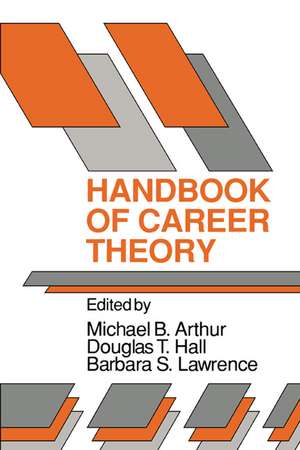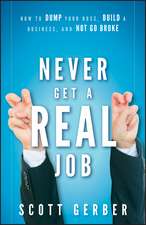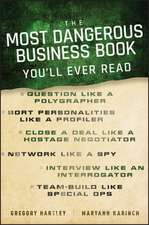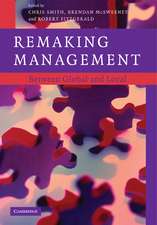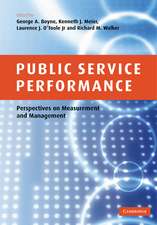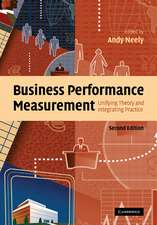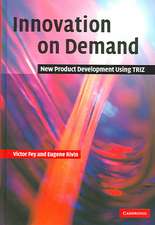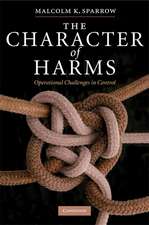Handbook of Career Theory
Editat de Michael B. Arthur, Douglas T. Hall, Barbara S. Lawrenceen Limba Engleză Paperback – 24 aug 1989
Preț: 695.95 lei
Preț vechi: 809.25 lei
-14% Nou
Puncte Express: 1044
Preț estimativ în valută:
133.21€ • 144.75$ • 111.97£
133.21€ • 144.75$ • 111.97£
Carte tipărită la comandă
Livrare economică 21 aprilie-05 mai
Preluare comenzi: 021 569.72.76
Specificații
ISBN-13: 9780521389440
ISBN-10: 0521389445
Pagini: 572
Dimensiuni: 152 x 234 x 27 mm
Greutate: 0.77 kg
Ediția:Reprint
Editura: Cambridge University Press
Colecția Cambridge University Press
Locul publicării:New York, United States
ISBN-10: 0521389445
Pagini: 572
Dimensiuni: 152 x 234 x 27 mm
Greutate: 0.77 kg
Ediția:Reprint
Editura: Cambridge University Press
Colecția Cambridge University Press
Locul publicării:New York, United States
Cuprins
List of contributors; Preface; Part I. Current Approaches to the Study of Careers: Introduction to Part I; 1. Generating new directions in career theroy: the case for a transdisciplinary approach Michael B. Arthur, Douglas T. Hall, and Barbara S. Lawrence; 2. Trait-factor theories: traditional cornerstone of career theory Nancy E. Betz, Louise F. Fitzgerlad, and Raymond E. Hill; 3. Careers, identities, and institutions: the legacy of the Chicago School of Sociology Stephen R. Barley; 4. The utility of adult development theory in understanding career adjustment process Solomon Cytrynbaum and John O. Crites; 5. Developmental views of careers in organizations Gene W. Dalton; 6. Exploring women's development: implications for career theory, practice, and research Joan V. Gallos; 7. The influence of race on career dynamics: theory and research on minority career experiences David A. Thomas and Clayton P. Alderfer; 8. Asynchronism in dual-career and family linkages Uma Sekaran and Douglas T. Hall; 9. Transitions, work histories, and careers Nigel Nicholson and Michael West; 10. Career system profiles and strategic staffing Jeffrey A. Sonnenfeld; Part II. New Ideas for the Study of Careers: Introduction to Part II; 11. People as sculptors versus sculpture: the roles of personality and personal control in organizations Nancy E. Bell and Barry M. Staw; 12. Work, stress, and careers: a preventive approach to maintaining organizational health Janina C. Latack; 13. Re-visioning career concepts: a feminist invitation Judi Marshall; 14. Reciprocity at work: the separate, yet inseparable possibilities for individual and organizational development Michael B. Arthur and Kathy E. Kram; 15. Career improvisation in self-designing organizations Karl E. Weick and Lisa R. Berlinger; 16. Organization career systems and employee misperceptions James E. Rosenbaum; 17. Blue-collar careers: meaning and choice in a world of constraints Robert J. Thomas; 18. A political perspective on careers: interests, networks, and environments Jeffrey Pfeffer; 19. Rites of passage in work careers Harrison M. Trice and David A. Morand; 20. Pin stripes, power ties, and personal relationships: the economics of career strategy Jay B. Barney and Barbara S. Lawrence; 21. Rhetoric in bureaucratic careers: managing the meaning of management success Dan Gowler and Karen Legge; 22. The internal and external career: a theoretical and cross-cultural perspective C. Brooklyn Derr and André Laurent; Part III. Future Directions for the Development of Career Theory: Introduction to Part III; 23. Understanding individual experience at work: comments on the theory and practice of careers Lotte Bailyn; 24. Propositions linking organizations and careers Paul C. Nystrom and Angeline W. McArthur; 25. Careers and the wealth of nations: a macro-perspective on the structure and implications of career forms Rosabeth Moss Kanter; Indexes.
Recenzii
"The field of career development is of growing importance, both as an academic discipline and as an important component of heightened practitioner emphasis on human resource management. This handbook provides a much needed infusion of new thinking to the field, thereby benefiting both its theoretical foundations and providing some additional perspectives within which future career practice can flourish." Choice
"...comprehensive and sweeping in its coverage of progress in the field." Barry Schlosser, The Independent Practitioner
"...comprehensive and sweeping in its coverage of progress in the field." Barry Schlosser, The Independent Practitioner
Descriere
This cross-disciplinary text is designed to appeal to a diversity of social science scholars.
